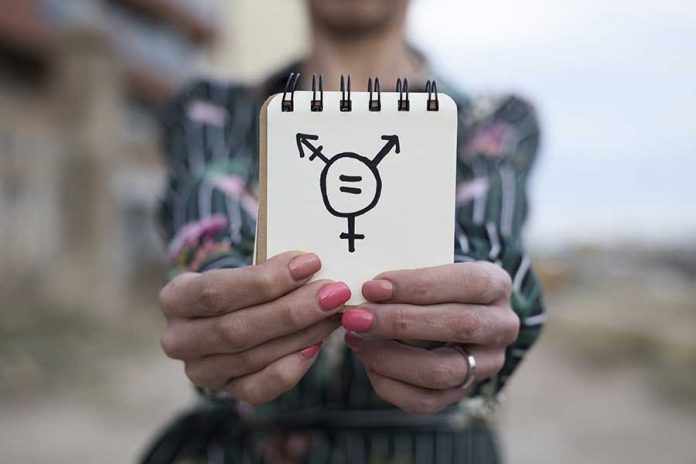At long last, North Carolina’s House Bill 2 is dead.
For those who may not know the significance, I’ll explain: The Public Facilities Privacy & Security Act, otherwise known as HB2, was a bill passed in North Carolina in 2016. Created in part as a reaction to Charlotte, North Carolina’s Ordinance 7056, passed earlier that year prohibiting discrimination based on sexual orientation or gender identity within a few specific categories, including public accommodations.
A month after the passage of Ordinance 7056, a special session of the state’s General Assembly was held. A day later, HB2 passed and then-Governor, McCrory, signed the bill into law.
What House Bill 2 did was simple but far reaching. It pre-empted any antidiscrimination ordinances — and not just LGBTQ-specific ones — enacted below the state level, disallowed anyone but the state to determine the minimum wage and required anyone using the restrooms at schools and public facilities in the state to only use the one corresponding to their birth certificate.
North Carolina requires surgery before one can alter their birth certificate, and few people carry their birth certificate around in order to use the restroom.
The fight over transgender people and bathrooms has been around for a while, flaring up in the aftermath of the fight for marriage equality as a new cause célèbre. The basic argument is that rapists and pedophiles will somehow use the restroom of a gender different from theirs, and their right to do so and assault others will somehow be upheld due to transgender public accommodation rights.
The notion is laughable, seemingly oblivious to the fact that rape and the sexual assault of minors are both very much illegal, unless you are the President of the United States or one of his trusted advisors, it seems — but I digress.
The notion of this sort of crime doesn’t start with transgender people, of course. Racists arguing against the rights of Black folks and other people of color using the same facilities as those white usually included arguments that POC would somehow use these rights to assault others. Fights for the ERA in the 1970s included arguments that the law would lead to “co-ed” restrooms and legalized assaults.
“Gay rights” battles, too, led to assumptions that restrooms would become a hotbed of sexual assault. One may argue that the debates over trans restroom usage are simply an extension of the same tropes used against gay and lesbian people in the 1970s, even as transgender people now see evolving media stories claiming transgender people are inappropriately “recruiting” non-transgender people, just like the era of Anita Bryant and Senator John Briggs.
However, back to HB2. The passage of the bill caused a firestorm. various localities across the country enacted bans on travel to North Carolina, companies scaled back plans to expansion into the state and performers cancelled events. Overall, North Carolina lost about $400 million dollars in jobs and investments thanks to House Bill 2.
Pat McCrory also lost his job, defeated by Democratic candidate Ray Cooper for the governor’s chair. Cooper ran largely on repealing HB2 — and he did. Sort of.
One year after the passage of HB2, almost to the day, North Carolina passed HB 142. The bill declared that, “state agencies, boards, offices, departments, institutions, branches of government, including The University of North Carolina and the North Carolina Community College System, and political subdivisions of the State, are preempted from regulation of access to multiple occupancy restrooms, showers, or changing facilities, except in accordance with an act of the General Assembly.”
One might think this is the end of the story, but Joaquin Carcaño, a transgender man who works for UNC-Chapel Hill disagreed. He took the state to court in Carcaño v. Cooper. In July, a settlement was approved, placing another nail in HB2’s coffin. The state may not bar transgender people from using a public restroom or similar state-run facilities congruent with their gender identity .
While this battle appears to, at long last, be won, I can’t help but note that the war is far from over.
“Bathroom bills” crop up every legislative session, as well as similar policies to restrict transgender minors in sports and even bills designed to limit gender-affirming care. Meanwhile, the U.S. Supreme Court is poised to debate transgender workplace rights in a case that could bar sex-based protections for decades. Transgender people remain barred from the U.S. military in most instances, while so-called “religious freedom” arguments threaten LGBTQ rights nationwide.
When House Bill 2 passed, many other states — most notably Texas — began to look at it as a framework for halting the spread of trans rights. I still expect similar attempts in the future, but the fight against HB2 may make all but the most fervent lawmakers think twice.
This should provide us some small hope. Even in these dark days, we still have a chance of victory over what was seen as an undefeatable bill that could sweep across, state by state, stripping transgender people of their rights nationwide.
Let this one victory be a candle in the darkness that is the fight for transgender rights in the era of Donald J. Trump, Michael Pence and Bret Kavanaugh, and let it help fuel us as we continue to fight for a better, most just world for transgender and nonbinary people.
We need to take our victories where we can right now.
Gwen Smith doesn’t carry her birth certificate around. You’ll find her at www.gwensmith.com

